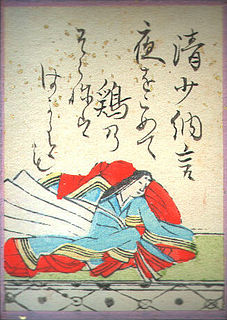A Quote by Michael Farris
This kind of behavior is so bizarre – no matter which version of the story you believe, even if you take Doug’s own version of the story – it’s so bizarre and inappropriate that he needs to get his life in order and not be thinking about how quickly he can come back into leadership.
Related Quotes
A good story isn't the one that shuts everyone down and sort of leaves them in silent awe. A good story is one that, even before you finish the anecdote, you can see their eyes shining because it has so resonated with something from their own lives that everyone in the group has a version of the same story and they cannot wait to tell it, and that they're going to compete to make their version even more extreme than your version. So your version is just a seed.
When I was approached for the Kannada version of the film, the makers said it would be their version of 'The Dirty Picture,' based on the life of Silk Smitha. So, I asked them for the exact story. But, I was shocked after hearing the complete story. It was neither like the Bollywood version, nor about the life of Silk Smitha.
If the point of life is the same as the point of a story, the point of life is character transformation. If I got any comfort as I set out on my first story, it was that in nearly every story, the protagonist is transformed. He's a jerk at the beginning and nice at the end, or a coward at the beginning and brave at the end. If the character doesn't change, the story hasn't happened yet. And if story is derived from real life, if story is just condensed version of life then life itself may be designed to change us so that we evolve from one kind of person to another.
In old interviews I was still worried about being judged. I think my life was about how can I keep myself in control. How can I just get through this and be okay? And, you know, you turn the corner. You realize that you're not imprisoned by your life or your circumstances or your genetics or anything. I really believe that we all have the ability to come out of our story. But you have to tell your story first in order to come out of it.
Perhaps the community you mentioned might not come to the story. Sometimes you have to take the story to them, and perform it, and that's another way that I get an alternate point of view that isn't the official version of history out to a community. I feel that's what I've been doing since Caramelo.
Every good story needs a complication. We learn this fiction-writing fundamental in courses and workshops, by reading a lot or, most painfully, through our own abandoned story drafts. After writing twenty pages about a harmonious family picnic, say, or a well-received rock concert, we discover that a story without a complication flounders, no matter how lovely the prose. A story needs a point of departure, a place from which the character can discover something, transform himself, realize a truth, reject a truth, right a wrong, make a mistake, come to terms.
A lot of the book [The Yoga of Max's Discontent] is about karma and rebirth. Things like that are very attuned to my life as an Indian, but when I approach it from a perspective of a Westerner, then I have a skeptical, yet kind of novice view on it. I think that choice really liberated the story to be its own story. A lot of the conclusions that Max reaches on his own are not mine at all. So, I think that allowed the story to take on its own momentum, to have its own propulsive force.
The best time to tell your story is when you have to tell your story. When it's not really a choice. But then, when you get that first, messy, complicated version down, you have to read it over and be very tough on yourself and ask, 'Well what's the story here?' If you're lucky enough to have someone you trust looking over your shoulder, he or she can help you if [you] lack perspective on your own story.




































